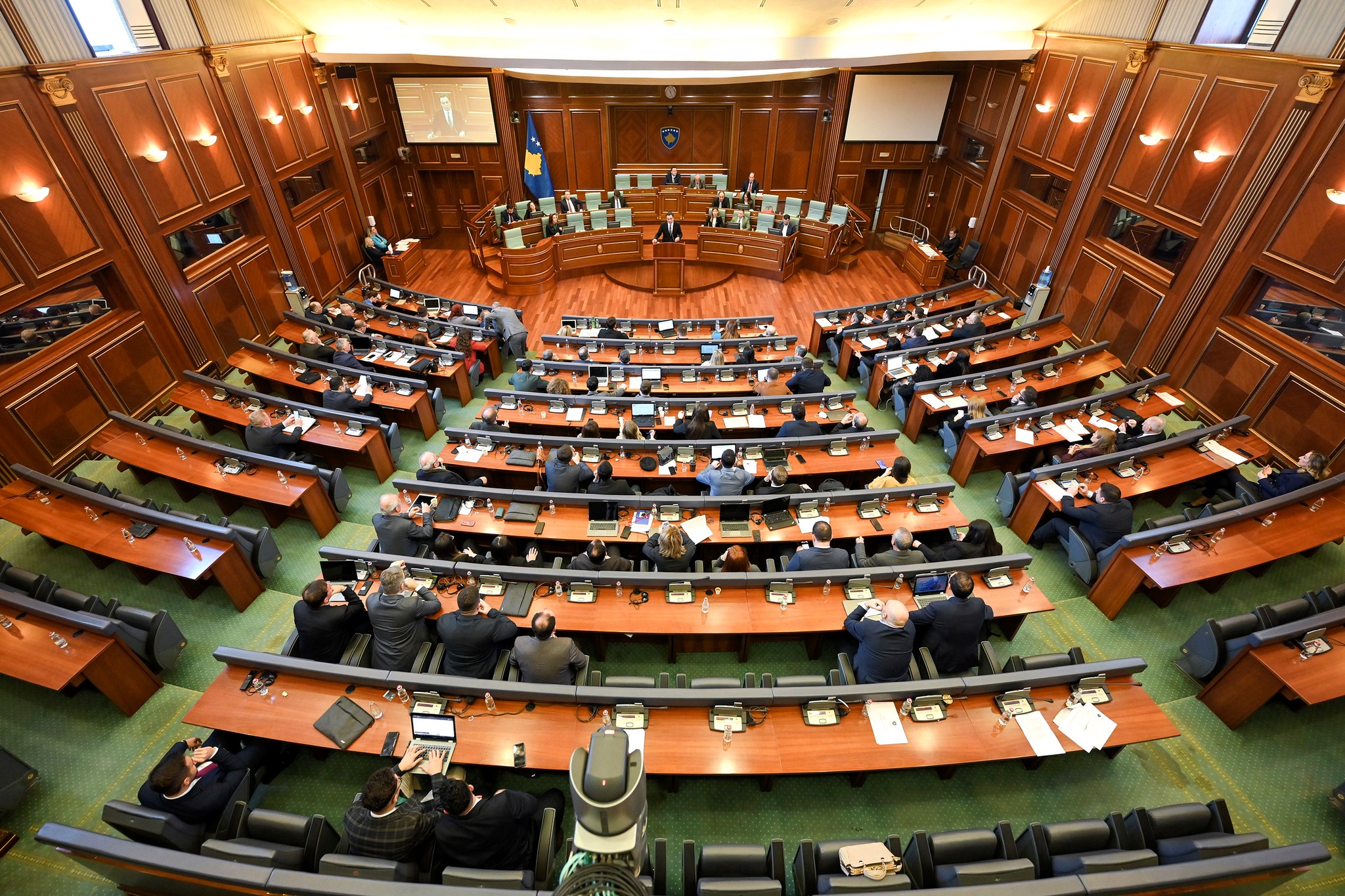Twelfth attempt to unblock Kosovo parliament fails, transitional government proposal rejected

Photo: Assembly of the Republic of Kosovo.
Kosovo’s deepening institutional deadlock dragged into a fourth week on Tuesday, as the 12th attempt to constitute the new parliament once again failed. The session, like the eleven before it, ended without electing a new Speaker—stalling the entire legislative process.
Why is this important: The prolonged impasse is delaying the formation of critical state institutions and deepening political uncertainty. Meanwhile, a proposed compromise by opposition leader Lumir Abdixhiku to form a transitional government has been dismissed by other major parties.
Context: Since the first parliamentary session on April 15, only two agenda items have been passed. The third—election of the Speaker—has consistently derailed progress due to lack of cross-party agreement. On Tuesday, parliamentary chair Avni Dehari again called on parties to propose members for the electoral commission tasked with overseeing the vote for Speaker, but his call was met with silence from PDK, LDK, AAK, and the Serb List.
All four groups refused to put forward names, opposing the current proposal to hold the Speaker vote via secret ballot. As a result, the session was adjourned once again and is expected to resume in 48 hours.
What else: Meanwhile, LDK leader Lumir Abdixhiku’s call for the formation of a transitional government with all Albanian parties—an attempt to break the deadlock—was dismissed by other factions. Ramush Haradinaj, head of the Alliance for the Future of Kosovo (AAK), said he supported consultations among opposition parties but categorically opposed the involvement of Vetëvendosje, the ruling party.
Haradinaj emphasized that any talks on a provisional government should exclude Prime Minister Albin Kurti’s party, which he accused of perpetuating the crisis.
What’s next: With no clear majority and no agreed candidate for Speaker, the gridlock appears set to continue. The Constitutional Court has yet to intervene, and the prospect of new elections looms if the stalemate drags on.


